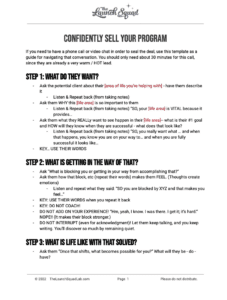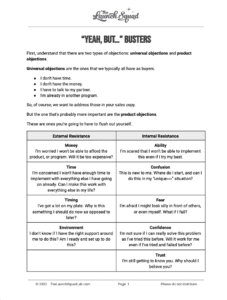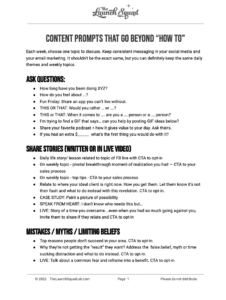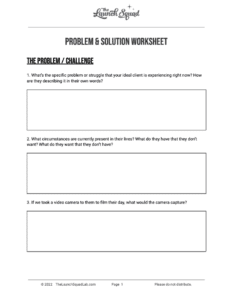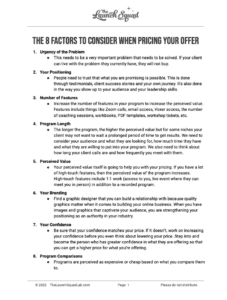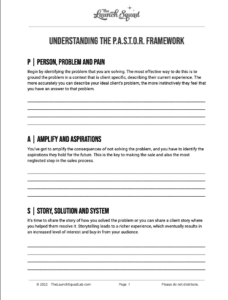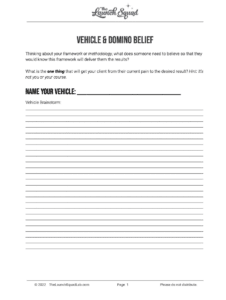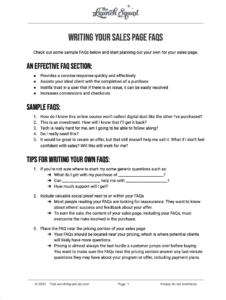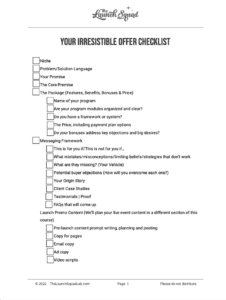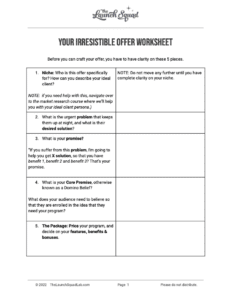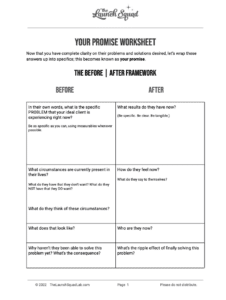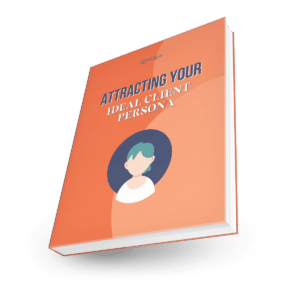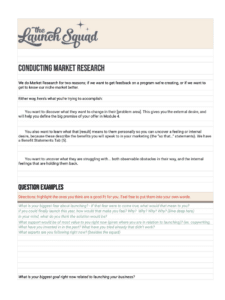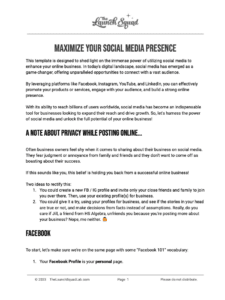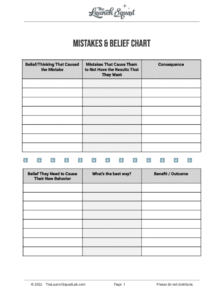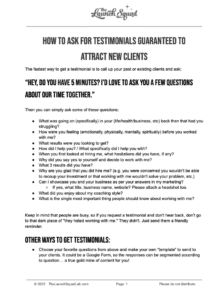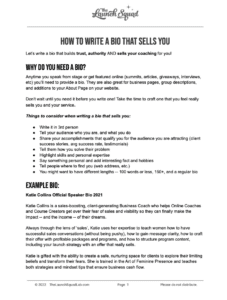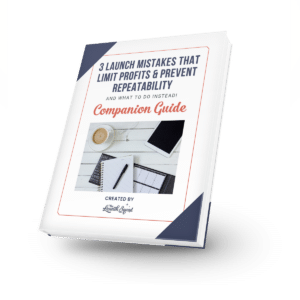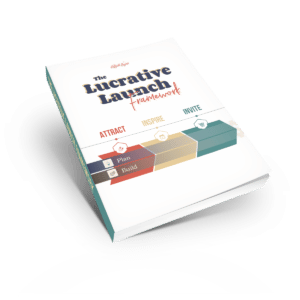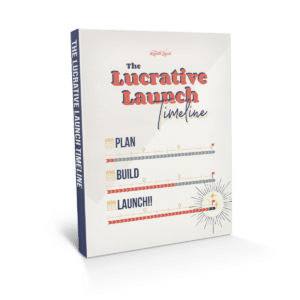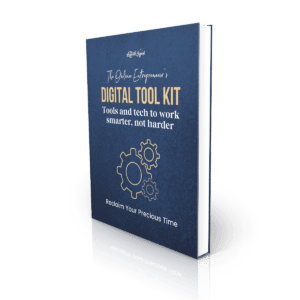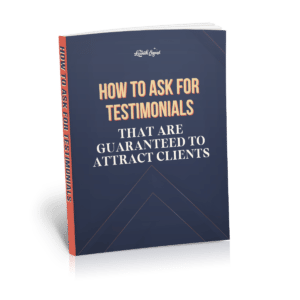She has two beautiful daughters with her husband, Kevin, and lives in a sleepy mountain town in Arizona. She’s a Jiujiteira, coffee snob, and an avid listener of podcasts and audiobooks.
Connect with Alyssa Marshall:
[00:00:00] Jeffrey: Welcome to the Light Near Launch Podcast. Today we're talking about profiting from your course before you build it. Stay tuned.
[00:00:55] Jeffrey: Welcome back to the show. I'm Jeffrey Sam in Allen. Today I'm talking with a very special guest about validating and selling your course before you actually build it. Today's guest received her d d s in both South Korea and the United States. She practiced dentistry before becoming an entrepreneur in 2023, sorry.
2013. She created an educational hub providing online courses and remote training for dentists all around the world looking to take their careers to the next level. This venture led her to retire at age 31. As a non-technical course creator, our guests grew frustrated with the various technical challenges of hosting a thriving online community.
The constant back and forth with developers just to make simple changes combined with the complexity of maintaining a whole separate chorus website led her and her partner Kevin, to develop their own custom chorus. This eventually became Oish, a platform that helps non-technical creators embed awesome looking online courses into their own websites without the help of a developer.
She has two beautiful daughters with her husband Kevin, and lives in a sleepy mountain town in Arizona. She is a , I won't say this right, ju j Tierra, a coffee snob. Avid podcast and audiobook listener, please welcome to the podcast stage Alyssa Marshall. Welcome.
[00:02:36] Alyssa: Thank you, Jeffrey, for the awesome intro and. Us for having me on today.
[00:02:41] Jeffrey: Yeah, I'm glad you could be here. First of all, there was a word in there that I don't think anybody's ever heard of. What the f as a ju j Tiara.
[00:02:51] Alyssa: It just means a female that practices jujitsu. It sounds fancier than it is. Um, I, when I was like writing up my bio, I was like, cuz it's a huge part of me, even though I don't get to practice as much as I would like. , it is a very important part of my life. And I was like, okay, how do I write this? And I Googled it and I picked up that word too,
I was like, okay, here we go,
[00:03:19] Jeffrey: It's, it's a great word. That helped, you know, has people stop and say, oh, what, what is
[00:03:24] Alyssa: does that
[00:03:25] Jeffrey: What is that? Yeah. How, how long have you been practicing that?
[00:03:29] Alyssa: Oh, the total time period. I know I, I'm not as advanced as I would like to be, especially given the time period I have been doing it. But I started before I got pregnant with my second. And then a few months in, I got pregnant. I had my second. She is now two and a half, almost three. Um, and I have been really on and off and on and off and on and off.
I, I wasn't able to like consistently do it. Uh, now I'm more a, a little bit more regular, uh, with whatever resources I have in Payson, Arizona, which is not very much. But, uh, but yeah.
[00:04:08] Jeffrey: That's amazing. I mad respect for the martial arts. I love it. I love it.
[00:04:13] Alyssa: It is so much fun.
[00:04:15] Jeffrey: So, so, so, uh, it's, you know, in your bio you say you were a, a dentist and then an entrepreneur, and now you're kind of, you've built this software. H how long were you a dentist for? Tell us about that.
[00:04:28] Alyssa: I practiced for exactly six months and To give you a little bit more context on how that came about, um, . So I graduate dental school, right? And before I graduated dental school, I had my mindset on starting a business. It was just that I wasn't clear on what it was going to be and it was, it was just like, okay, I was learning about this online business world and I knew I wanted to get involved in it.
I just didn't know what, what or how. yet. And so I found a job and it came with a six month guaranteed pay And so I was like, okay, let's go And the office was actually kind of on a decline already. Uh, it actually closed doors, I think within a year of me leaving. I was not the sole dentist there. It had another doctor.
Um, but it was one of those corporate dental offices and I just don't think they planned it out very well, where like a couple miles that way. There was another location, a couples miles that way. There was another location. It was just like way too close. And so like people would go to the wrong location and this location was the one that eventually ended up closing.
And so there, there weren't a lot of patients. Coming already, you know, for like the office to close down. And so for me it was just like, all right, well I didn't have wifi there, but I could bring my computer and work still. Like I could, you know, write or whatever, do some thinking. And so I took it as a time to, um, I mean, of course when I had my patients, I would work on them.
I, I would give them my own. It's not like I was just like, oh, whatever. I, I, I certainly did focus on my patients when I had them, but I didn't really care about building up the practice the way, let's say you would have to if you owned that practice and you had to make a living from it. I didn't really care if patients canceled on me.
It was like, okay, wonderful, , like I got some time to, let's say, uh, do more research on whatever it is that I want to do, you know? Uh, so yeah, and at the end of the six months, it was very clear that, um, I, first of all no longer wanted to do it, and second of all, That, uh, it was just not enough. If, if I got off the guaranteed pay, it was just not gonna be enough to make it worth my time anymore.
So that's when we quit, or I quit and went full-time on business.
[00:07:03] Jeffrey: And so tell us about that transition. Like, you know, that, how, how did you transition from. Working with patients to then working with dentists and, and the whole course idea.
[00:07:17] Alyssa: Sure. So as you read out in my bio, I, uh, I earned my degrees from South Korea and in the US So when dentists come from other countries, there is a process that they need to go through that is different from let's say an undergraduate student that is trying to go to dental school fresh. Um, there was dentists coming from Abroader competing against each other, and I had gone through that process, right?
And it's so competitive and. But I did that process twice. The first year I did so bad. I didn't get any get, get in anywhere. And the second year I did so well that I had all these choices in terms of where I could go to school and I was able to choose. And you know, while I was going through that process, I made some friends and several of those friends actually struggled for a few more years.
And so when I was in that fortunate position, I just started to help some friends and then I would help some friends of friends, and I kind of organically started out this process. I wasn't even thinking that I was building a business at that time. I wasn't thinking about that. Um, and then I met Kevin, who is now my husband.
Um, and he had been involved in some admissions process stuff from his career. And so we kind of worked together on just helping them. We weren't even like, I don't think we, we didn't charge anybody anything until, um, until I was done with school. But it was just, you know, goodwill more or less. And then, While I was practicing, a couple people reached out to me.
One person lived. in my neighborhood, I should say. And she had to take this test. That's a hand skills assessment test. Basically, you have to go to a school and show them your ability to cut teeth to US standards. It's plastic teeth, not on a real patient, but those standards are so strict. Yeah. And that test is actually what really got me into this whole, whole thing anyway, so I was teaching her right, like one-on-one, like after, after work. And she just kind of casually said, Hey, do you know that there are these dental students? in Colorado that are bringing people into their apartments and charging them money to teach this stuff. I was like, oh, I had no idea because like in my mind, there was only one, um, kind of longstanding place where internationally trained dentists could go to learn the hand skills in California, but it was a very official kind of teaching facility.
So I did not know that anything unofficial was happening like that. And that. was, that really got me thinking, right? Me and my husband, uh, Kevin, we were both like, oh, like this is a thing. And so when I was quitting at the end of the six months mark, It was more like, let's, let's try this, let's try doing some life courses.
Um, and worse comes worse. If it doesn't work, I can always find another job. That part is actually pretty easy. And so it was like, what, what, you know, like totally worth the try. And it worked. So we did the same thing. We brought people into our apartment our apartment complex in Austin, Texas. To do this, we moved from a one bedroom apartment to a two bedroom apartment, so within the same company, so we weren't breaking the lease, you know what I mean?
Uh, so we moved, so we had more space, and we just got a bunch of these Ikea, very basic IKEA tables set up a air compressor that is not suitable for a patient. Care, but for plastic teeth it's okay. , it was on the ground floor, so we were able to put the air compressor outside, um, in the water tank, you know, closet.
And
[00:11:12] Jeffrey: Oh my
[00:11:12] Alyssa: we were full from the very, very first course we were full.
[00:11:16] Jeffrey: Wow. And then, and then you just took that online, like what was the transition of taking that from, from your living room, literally to an online course?
[00:11:31] Alyssa: There is only so many people I can teach at once, and it is so physically demanding. Extremely tiring. Very lucrative. Yes. But oh my gosh, I was hired. And the ups and downs, cuz it all goes along with when schools are interviewing, which is like clustered at a certain time of year. Right. So, . It was like, okay, at this time of the year there's a bunch of courses we can do them back to back or however many I could do.
And then the rest of the year was crickets, nothing. And Kevin's really the one that pushed me. He said, there's gotta be the A way to do this online. And I was like, no, there isn't. This is dentistry. We don't teach dentistry online. And he's like, no, really think about it. I was like, no. Exactly. Think about it.
We don't do this online. You need to see the person to show them how. Uh, like from the very basics I would have to teach because dentistry, the way it's taught is so very different across the world. So I would really like teach a lot of people from the very foundations of how to properly hold a ham piece.
It's like, how am I supposed to do that? Like, it's like trying to learn to paint, you know? Which actually now, like you can learn to paint online too, but like, this is like 10 years ago. It was not quite as, you know, readily available. But he really pushed me. And you know, like when a thought marinades in you and you just kind of go in the shower, you're just like, oh, maybe.
And then you go, oh, well maybe we can. And so it really was an iteration. Thoughts and like purchasing different types of equipment to see if, let's say, if I filmed this way, would it work if I filmed that way, would it work? Tried so many different things. Um, went through a bunch of, let's say different mirrors and different types of cameras.
Um, but I wanted it, I wanted it because, teaching up live was so tiring and you're not supposed to do it in an apartment, you know,
[00:13:30] Jeffrey: Right, right.
[00:13:31] Alyssa: pretty much we were doing something we were not supposed to do and it was like, well, we can only do this for so long. But we didn't really wanna rent a house yet because, like, to just to do this a certain part of the year.
It was just a lot of like, you know, less than desirable situations. And so, . Uh, we taught live for two years and then when he really pushed, like, come on, think about it. Like you can figure it out. Uh, we did, and I mean he helped a lot in terms of like, okay, I found this kind of camera that like can record really closely, and we ended up figuring out how to set up two cameras.
So they recorded what I was doing from two separate angles. All this voiceover, all of it. It was, it was a big ordeal, but so very worth it. And, but the thing is, okay, like we figured out that it was possible, right?
[00:14:24] Jeffrey: Yeah.
[00:14:24] Alyssa: But then the question was, even if I did it, would anybody buy it? Cuz like, if they weren't ready to learn online, it didn't matter.
Like nothing was gonna sell. And this course that I had to make, Big. It was very, very big. It was a huge thing starting from how to hold a handpiece to, let's say, the positions of you and the patient and, you know, when you're working fake patient, but still to the very, um, nitty gritty of how to touch each and every tooth for this kind of situation or that kind of situation.
It was, there were so many modules. Details that I had to go into that I was just like, okay, where do I even start? And like, what if nobody wants it? And anybo, you know, like, I didn't want to work for months and get crickets.
[00:15:19] Jeffrey: Yes. Yes. Okay. So that, that is a big, big point cuz I know there's a lot of people out there that are thinking they're, they're either thinking of an idea or they have a great idea for an online course that we've all been kind of sold this, um, Idea. It's not a lie, but it's an idea that, you know, a leveraged course can bring in, you know, life-changing revenue and everyone wants one.
Everyone and all the people who have an idea, who have something to teach, they're like, okay, I need an online course, but, How do you, it's obviously a, it takes a long time, like you just said, it takes a long time to develop and to even prove that you can do this. Like in your situation, multi-camera, voiceovers, you know, all of this stuff.
So it's like there are people, I guess what I'm getting at is there are people in a position right now who have an idea, who have a course, who can teach something. And they're thinking, man, that's gonna take a long time and a big investment and oh, can I really do it? So really, how do you, how do you know you should, how do you validate this idea before you spend the next 10 months building it?
[00:16:43] Alyssa: Yes, it is a very good and very big question. I'll tell you first what I did, but if I know what I know, If I knew then what I know now, I would've done things very differently. And what made it easier for me back then was, first of all, it was 10 years ago, and second of all, my audience were in a a few small number of Facebook groups and forums.
That was it. , it was very easy for me to get in front of my audience because not only were they, was it very obvious where they were hanging out, but there was also nobody helping them in a professional manner. I was the first, and so what I did was. I put up a sales page, I created a promise. I said that this will be done.
I did not say that this is done. I said, this will be done . I think the promise at that time was I. Two week long course, Monday through Friday, a new module will be released every single day for two weeks. And by the end of it, you will have learned this and this and that and that. And this is the price. If you pre-purchase it half off.
[00:18:01] Jeffrey: Wow.
[00:18:02] Alyssa: yes, it was half off. And, uh, I remember, um, by then, We were building up an email list and, and doing things like that. And so I remember we sent out an email and I posted it on, you know, the few places I know that they're hanging out. And Kevin and I, we went to the melting pot to cap fondue, and I was so nervous.
I mean, you know, it was kind of like, okay. Uh, and we had, I don't remember how many sales it was, but we had this number like, okay, if we hit, I think it, it was less than 10, but if we hit something like 10 sales, cuz the course was gonna be a thousand dollars, it was worth it.
[00:18:51] Jeffrey: Mm-hmm.
[00:18:52] Alyssa: And so if we hit
[00:18:54] Jeffrey: is that the half price?
[00:18:56] Alyssa: No, no, no.
That was the full price. So
[00:18:58] Jeffrey: bought it now it's 500 bucks.
[00:19:00] Alyssa: 500 bucks. Yes. And. If we get that number, we'll make the course. And if we get pre-sales, we will get sales too. And I remember we hit that number before we were done with dinner. and I was happy at the same time. I was extremely freaked out, so that's what I did.
Now, if I knew then what I know now, I would not have built a gigantic course like that from the beginning because it was my first time trying to come up with a curriculum and teach a very, very big subject online. . I didn't even know how I was gonna teach this thing, you know? I was totally winging it.
And the curriculum had to be redone more than once because I evolved my teaching style. I learned as I teach, right? But at the same time, I tried to, to tackle a very, very big subject at once. For what? Why? Do that. It was so stressful. We barely slept. I was filming, he was editing. We just, we, we delivered the deliverables, but barely, like, seriously, we were stress balls.
We don't wanna go back to that time. If I had to do this all over again, and I know, you know, I, I have a little bit more wisdom like I do now. , I would've done a very small course, like how to do one specific preparation on one specific tooth. Like a, what is a, just a module In my flagship course, I would've, that would've been my only promise.
You wanna learn this because like there are some classic ones, right? There's a big importance things right? That they need to learn. I would've just promised that and said, and I would've done the same thing. The rest of it, I think I would've done the same. Um, knowing where they hang out, like pre-selling all of this, I would've done it the exact same way.
But for anybody that's thinking about building a course, you probably have an idea of what it is that you want to teach, but do you know what it is that your audience wants to learn? That can be two separate things. Um,
[00:21:15] Jeffrey: Amen. Amen.
[00:21:18] Alyssa: building a flagship course is so much. Blood, sweat and tears months of your time, and if you don't have a very good idea, a very clear idea that you are actually gonna make money from this, that this is gonna pay off the chances of you getting demotivated in the middle of building this thing is so very high. And so, Just start from little mini courses. Don't like, there's no reason to do what I did, you know, and it's not, you know, 2013 anymore, you know, there's a lot of resources showing you how to do things, and there's a lot of competition too. You really have to stand out and what it is that you do and make a personal connection to your.
You need to give them a reason to follow you versus like whoever else is teaching something very similar to what you are teaching. I do believe that the creative economy is amazing and there is room for you. There's room for you to teach what it is that you wanna teach, and there's room and there you will find your audience that resonates with how you are teaching it.
I do firmly believe that, but you have to find that audience. First. So unless you have a very strong, specific or interesting niche where there aren't that many options to learn or there aren't really online courses already, and those niches, I'm sure do exist. I just don't know what they are. Like, you know that, that's why it's a niche, right?
Like you, it's a very specific interest thing. If you are. in something like that. And you know, when, when you're in a smaller community like that, um, it's usually more clear where it is that people are hanging out. Like you don't have to search and run ads versus let's say like if you're in like business development or like coaching on, on your personal productivity coaching, something like that, it's so much more competitive that you really have to build your audience first.
otherwise, I mean like you, I mean, it can decently work out maybe, hopefully, but the chances of you just wasting so much time and blood, sweat, and tears and just lose your North star and just the motivation to do this thing that really can change your life if done well. The possibility of you losing that I think is fairly high.
So be very intentional about each step. Don't work too much before, you know, like build in public, you know, that's kind of a thing in software, like build in public, share what you're doing. Um, do that with, with your course. Like promise something small or just. You know, while you're building your audience up, like, write a blog post, see if they like that topic.
Like, oh, if there's a blog post that performs exceptionally well, then like, okay, there's something there you can maybe do, go do a 2.0 that's more of a, a course kind of thing. But you can, you know, expand on that, go a little bit deeper and make this into a mini course and maybe you charge for it, maybe you don't.
Sometimes courses do exceptionally well as legions, you know. , if there was an opt-in for you to either like get a PDF f or get a course, like what are you gonna get? Like where are you go? Where are you more likely to leave your email address? I can tell you like I would do a course, like it just looks like it.
It's gonna be better quality material, even if it's the same exact material as A P D F would've been. And I mean, it depends on your learning style, all of that kind of stuff. Like I like to listen.
[00:25:06] Jeffrey: Yeah.
[00:25:07] Alyssa: That's, that's my learning style rather than to read. Uh, but, but yeah, I think a lot of people would prefer that.
And it just comes across like, oh, this person is a person that gives away a lot of good stuff for free. Let me follow this. Like this is worthy of sharing my email address. You're gonna build up your email address, like list faster, and now you have an audience to sell something to, and maybe the next thing you sell is another minicourse.
And then maybe you do another mini course.
[00:25:36] Jeffrey: Yeah.
[00:25:37] Alyssa: and then maybe it's time to think about your flagship big course. you really, really wanted to do, but you'll have a clear idea in terms of what things resonate with your audience. Also, you'll refine your teaching style. This will just happen with time. As you say the same thing over and over again, you're like, oh, if I explain it that way, they get it easier.
You know, this stuff is such just a natural evolution. You, you will evolve your teaching style and your flagship course will be that much better it won't be crickets,
[00:26:10] Jeffrey: I, I love that. And kind of what, what you're touching on here is, um, you know, a major question I hear a lot is like, how do you build an audience with a course in, in kind of what you're saying is, When you start small with a small mini course or a, or a portion maybe. Maybe it is a portion of your flagship, but you just wanna n nail that one module and see if it works and get feedback on it.
That is building an audience, right?
[00:26:37] Alyssa: Exactly. Yes. Yes. I can't stress that enough. And like when I say minicourse, I seriously mean like if you are sitting down at a coffee shop with somebody, it shouldn't take more than two hours to deliver this information to the other person. Anything more than that? Chip it off, make it smaller, make your promise smaller.
Make your promise small, but extremely specific, very clearly specific about what it is that you are going to teach. Um, and don't, I mean, yes, there will be so many other things where you're like, well, if I'm talking about this and I just wanna go a little bit deeper. Yeah. Next time, that's gotta be the next module.
That's gonna be the next thing. That's okay. And you can even say those things throughout the minicourse like. Just be like, Hey, and if you this, you like this and you want me to talk more about, let's say, going deeper into this direction, shoot me an email and let me know. So, and that's how you know that you have interest.
[00:27:39] Jeffrey: Yeah. I love that. I love that. And I like what you also said about, um, you know, blogging and stuff like that, how, uh, even a popular blog post could potentially, um, start validating an idea for a bigger lesson or mini course or something like that. And I think, I think something that. Is often overlooked or skipped by a lot of entrepreneurs is that initial content creation part of things such as blogging or even having a social media presence and, and, you know, conversations on social media or something like that where, uh, , um, you get to test out ideas, you know, and you get a bunch of likes on this post, or you get a bunch of readership on a blog post.
Like, that's validation. That's, that's, um, Feedback from your audience. Your audience is already there, right? You might not have their email yet, or they might not be in your c r m or anything like that, but they're, they're listening to you. And I think, I think that's a huge step that a lot of people miss is content creation.
Let's just start talking about these ideas. I like that.
[00:28:59] Alyssa: I totally agree with you and you know, I think it's also important to know yourself in terms of what kind of top content you like to create. Maybe you're a writer and you like to. Write blog posts. Maybe you're a more short-term writer and you would rather do a bunch of like Twitter, uh, posts. Or maybe you're a live person and you wanted a YouTuber, Facebook Lives.
Um, it is important that you try to align your strategy with what you actually enjoy, cuz there's no, it's not like, , you must write or you know, you must go live. It's, it doesn't matter like you there, you can really find people that succeeded in all different directions. But what's really important is staying with it, being consistent, and at least for myself, like I know that if I try to motivate myself, motivate myself to do something that I really just don't enjoy doing for a long of period of time.
I'm gonna fall off the bandwagon because I just don't like it. Like I don't enjoy it. If you're building your business, think about what you like to do and build that into how you are doing it. Of course, there'll be times where you have to do things that you don't wanna do, but don't make that a core strategy of your business.
Let's say if you really don't, w. Doing live calls, for instance. Don't make that a core part of your business. Maybe you just write articles, you know, well, whatever it is that you choose, be consistent with it. And in terms of, let's say when you're ready to make an online course, most online courses sure have talking head videos, but if you really don't feel comfortable with it, you don't have to be on camera yourself.
You can just have PowerPoints and you know, maybe you just record a quick hello. I'm Melissa, and welcome to the course, and let's go , you know, and then you are off the camera and you don't have to put on your makeup, you don't have to worry about your background, nothing. You know, and you're just sharing things more in a format that makes sense to you.
But I guess I'm saying this so that, first of all, because I want you to stick to whatever strategy it is that you are going for. And second of all, I want you to enjoy what it is that you're doing and the business that you're building, because the last thing you want is to, let's say if I was not a live video person, but I've built up this audience that expects me to come live every Wednesday evening, I am not going to enjoy my business, and why am I doing this then, you know, so in the, in this world of infinite choices like. it doesn't matter. Like that person says like, I went live every Wednesday evening. You do the same. You can't just be like, okay, blinders, because that's not what I'm doing here. Most people, you know, start off as solopreneurs, small businesses. Maybe it's you and a va. Um, You can only do so much. Don't try to do everything.
You can only do so much. You have to focus and just be like, okay, I have this strategy. This is my strategy. I'm gonna write blog posts and publish them every Thursday. That's my thing, stick with it. And when you become really proficient with it or whatever, and then maybe it's like, okay, let's look at distribution channels instead of being like, let me create more and more and more and more and more content, which will make you ex absolutely exhausted.
It's more like, okay, with the blog post I already have and that, how can I distribute this more efficiently? Or what can I do more with what I've already created? Just becoming really. Creative and intentional. Intentional is really a word that I like to say a lot in terms of, you know, when you think about business, just, I just, it's so easy to be like, okay, shiny object over there, shiny object over there, and you're running around and you've done, what have you actually accomplished?
You've been so busy, but you. You know, you don't really have much to show for at the end of the day because you started those lives, you dropped it, you started those like whatever, Twitters, and you dropped it. You started LinkedIn, then you didn't like that, so you dropped that. And just think about, you know, which social media platform you're already comfortable with and think about how do you like videos?
Do you like audio? Do you like writing what it is that you like?
[00:33:35] Jeffrey: Not saying that testing at all is bad.
[00:33:38] Alyssa: No, no, no. Test it.
[00:33:40] Jeffrey: yeah. When you find it though,
[00:33:42] Alyssa: Yeah. Stick with it because your audience will come to rely on your consistency.
[00:33:49] Jeffrey: Yeah.
[00:33:50] Alyssa: and once you start building an audience through one channel, you want to continue to show up there for them in a way where that they have come to expect from you.
That is your business. That is what you're promising. And so it is very important that you are doing something that you know you can continue for a long time. They have the stamina.
[00:34:14] Jeffrey: Amen. Yeah, I love that. I love that. And it starts all, starts with content and an idea and a goal. Tell me about, uh, I know this was probably a while ago, but. We are the launch squad. So I want to hear about your launch when you decided to pre-sell this, you know, and you knew that you had an audience and um, you know, you were getting ready with your sales page.
Like, tell me about that launch and that experience and, and, and how that went.
[00:34:48] Alyssa: So, yes, it was approximately 10 years ago, maybe like closer to eight years ago. Um, first thing was the conception, right? Like me figuring out. or Kevin convincing me that I could figure out how to deliver this information online. And before we created the sales page, like I, I bought a lot of gear. Like it wasn't, most of it was not very expensive.
I bought this camera, um, it's called I Pvo, I think they're still in business. They were cameras made. Teachers to be able to, let's say, draw on a piece of paper, but have that drawing show up like projected at the same time, or show across computers. And so it was really good at picking up details. And so we, and it was like a hundred bucks per camera, something like that.
And so, but before we settled on that, I was like, okay, maybe you have to buy like a bunch of mirrors so that like, and like film what? Film the mirror and film this. And I, I had like, um, good camera, like a Canon three TI says A D S L R. I had that from when I was in dental school cause we were taking patient.
So I thought like, okay, we're gonna have to figure out how to like film all this. And it was just like, so much like jumbled this. But then once we find the i e pvo and found that like, oh, I can like angle cameras in this way and do this, like, okay, I figured the tech right. I, I think I figured out the tech and we did some test runs and it looked really, really good, um, on the screen.
And then it was like, okay, what's next? And it was like, well, we could make it. or we could sell
[00:36:34] Jeffrey: We can make it or we could sell it. I love
[00:36:36] Alyssa: could sell it. Yeah. And we talked about this a lot because I did have that initial hesitation in terms of selling something that I did not have. And it, it was just like this discomfort that I had to come over for myself.
[00:36:54] Jeffrey: Mm-hmm.
[00:36:55] Alyssa: Um, I don't remember where I.
[00:36:58] Jeffrey: you overcome that? Well,
[00:37:01] Alyssa: Well, because I preferred that over the alternative
[00:37:04] Jeffrey: yeah,
[00:37:05] Alyssa: which was to build it and have crickets because it was such a weird concept. You know, like if you think about something that has never been taught online, how do you, like, you're gonna just make a course and be like, okay, give me a thousand bucks for it.
Maybe. But, and, but I also knew that for me, I needed a deadline. I had to have this promise. If I didn't have that deadline, it would've taken me six months to build that course instead of however long it took me. So that was a fire under my ass, like I had to get it done. Right. So all of those things considered, and I mean, we talked so much about if we do this, then this is, you know, there's no perfect option. So like, it's like, okay, if you do this, like I like this about this option, but I don't like this. And then it was like, so it was just like, all right, it's a test. We can test it out. . That really was what it was. So it's just like put up a sales page. The sales page doesn't even have to be like, perfect. I'll just write down what I promise.
And when the release dates, and I just basically brainstormed the curriculum in terms of like 10 lessons, right? two, two weeks, Monday through Friday. So that's 10 modules or 10 things I'm promising. I mean, after that launch I added on to that course so much. But this was just like initially what I could, what I could do as a novice teacher that, yes, I've taught some live courses, but during a live course it was like I, I'm able to more respond to the student specific needs that's sitting in front of me versus like creating.
Curriculum that it was very
[00:38:53] Jeffrey: I think this is interesting because I think that's where a lot of people get tripped up to, is. You know, how, how do I, how do I build a sales page and talk about what I'm selling when I haven't created it yet? You know, so I, I like what you're saying there, because I think this is a big point, this is a big point we talked to our clients about, is you all, all you really need to do is know how to talk about what you want to deliver.
Right? And, and I think that's the key point is like, yeah, you gotta. You know, thinking about the curriculum, about the modules, about the name of the modules and what you're teaching and you know what the benefits they're gonna get. But that still doesn't mean you built anything. Right. You just gotta know how to talk about it.
[00:39:42] Alyssa: yes, but also that doing that part is part of building your course, because if you don't know what you're building and you don't know the mos. What, what exactly are you building? You know, I think it's Amazon Does this, Jeff Bezos, I don't know if it's, he still does it, but it's stuck with me. Um, if anybody wants to pitch him an idea, they have to write a press release first.
[00:40:08] Jeffrey: Yeah. Yeah.
[00:40:10] Alyssa: and talk and, and pitch that press release. And the press release will basically says Amazon has launched this for this reason. it just brings a lot of clarity to the vision of what you are actually building. So the process and the practice of writing the sales page first is something you should. Be doing.
And I mean, if you sit down in front of a blank Google Doc and you're like, okay, let me write the sales page. It's like, sounds like a big thing. But first just think like, okay, what's the outline gonna be of my little thing? What is it that I'm promising? Write it in a sentence, you know? And then you just add little things and go from there.
Because what your audience cares about most is, okay, look, what are you promising me? Why should I care? What am I gonna learn by the end of this?
[00:40:56] Jeffrey: Yes,
[00:40:57] Alyssa: so just focus around that. You don't have to overcomplicate the thought process around this. And if you are somebody that likes to speak, then just record a quick video and be like, Hey, I am working on this course.
This is what you'll learn. By the end of it, it'll take you two hours of your time. And really, if you're working on a mini course, it shouldn't take more than that for the learner to go through. It'll take, it'll take two hours of your time. At the end of two hours, you will have learned how to use Google Docs for your business in an organized way.
Whatever it
[00:41:31] Jeffrey: Yeah.
[00:41:32] Alyssa: you want it half off right now if you get it before we launch and boom, there you go. And honestly, we have used this sales page first strategy. Not just for courses, but also in testing software. And it has worked so well. It like, if you use the right keywords, sometimes Google would even pick it up.
And um, we used it to just test business ideas and, and things like this to see like, okay, we like this and we like that, A or B, which is it gonna B Well, let's test it. Write some text and it's not as fun, right? As, as like creators, the what we like to do the most is maybe the teaching part, but you have somebody that wants that exact thing you're teaching, it's gonna be really hard for you to make a living that you're proud of from.
Teaching. And so this is perhaps a learned skill for most certainly didn't come naturally to me. I was not that right? Like I, I was trained to be a dentist. Like, and yes, dentists do have to sell sometimes, but like you don't learn to sell in school. You learn, you learn to treat in school. So like, this was a huge, like a big thing to learn, but it's like an evolution in your entrepreneurial.
Journey that if you wanna be an entrepreneur, but if you don't know how to sell, then you're, maybe you need a business partner or , you know, you need to learn. Because unless you've really kind of get comfortable with that idea of selling and, and selling doesn't have to be sleazy. You're not selling co coco knives.
Um, not anything against that, but like you're really trying to teach something that they would benefit from. Right. And so what, what really is like, like for me and for instance, like I knew from the live courses that I've taught that people really walked out of my class. Transformed in terms of what they could produce with their hands.
And did I know that I could do the same thing online? Not yet, but I had a pretty good idea that I knew how, by the time I created my sales page, I was pretty confident that I think I got something here.
[00:43:57] Jeffrey: Yeah.
[00:43:58] Alyssa: so when I was writing out that thing, it was. Look, you don't have many options. You really don't like, at least for my audience, at that time, they didn't have that many options.
There were certainly no thousand dollars options. You go somewhere, it's gonna be easily $3,000 plus flight plus hotel like versus this like, It, you keep access for a long time. You work with me for longer. It's like, and it's a fraction of the price, like I did not feel like I was pushing them. You shouldn't feel like you're pushing them to buy something cuz they won't buy it.
If that's your, the energy that you're get, they're getting. But it really is more like I've created something that is extremely beneficial for you. You want it in or out, like, you know,
[00:44:44] Jeffrey: You are creating a service for somebody, you're help. Like I think that's a big, big concept because that's where sleazy, uh, sleazy sales comes in, is if you're trying to sell something that doesn't actually help people and they don't actually want, that is the epitome of sleazy selling. Right? But that's not this audience, that's not who we're talking to.
Right. Right. They want to, our audience is literally people who help people. And I think, you know, when you approach it from that way, like you're saying is you're selling as a service, right? You are, you're here to serve, but you can't, uh, simply teaching and only teaching. Is unsustainable. And that's something we tell our clients all the time is like, if you don't at least get comfortable selling and marketing your services, it's an unsustainable business model.
So it's gotta be in there somewhere. It's gotta be in there somewhere. And if you miss it, then you teach until you can't support your teaching anymore and you go find a job.
[00:45:59] Alyssa: For real. Yeah, for real. I mean, it is. If you want to be your own boss, it's something that you have to make peace with. Without that part, it's going to be really, really hard. And you know, hopefully you're slowly building up your audience, whether on whatever platform it is that you're building it on. Then you can just ask a question, what I'm thinking about making a course, what do you wanna learn from me?
And then they answer. And then when if you make something that they. they wanted, are you really selling? Like, is that sleazy? No. It's like, okay, hey, you said you wanted this when I asked you three weeks ago, here is a way for you to buy what it is that you said you wanted. Right now it is half off because, and obviously yes, I, I do have to charge money for it because it is my time and all of that.
If you want it, go ahead. It's a really good deal right now. You know, like it's, it's. Yeah, it's it. You're not being sleazy. Think about what's, how that person's, whatever it is, knowledge of Google Doc. . I'm just going back to Google Doc. So if you're teaching somebody how to keep your Google folder organized, which I know somebody has that course and I heard that it's really good.
My Google's quite a mess to be honest. Oh my gosh. But. I have thought about buying that course, but you know, like a course doesn't have to be something very complicated. It can be as simple as that. Um, but like if I took the time to go through that course and organize my Google folders, , I think I would have a little bit of weight lifted off my shoulders and that would be wonderful.
Like when I saw that message of somebody selling that course, did I feel like, why is this person selling and being also say no? I've been like, oh my gosh, that looks really good. It's just not a right time for me right now is exactly what I thought. Maybe in a couple months I can revisit this thing. You know what I mean?
And I booked Mark to her sales page. But um, but yeah, like if you are teaching something that they said that they wanted to learn, , then you're helping them. And so you have to shift your thought in terms of like, oh, I don't wanna sell, because, you know, it just doesn't feel right. Like I, I don't like sales too.
I can't wait to share what I've made for my audience to help them in the journey. And I can't wait to see how their lives change after they consume my content that I created for.
[00:48:35] Jeffrey: Absolutely, absolutely. Alyssa, this has been a great, a great conversation and, uh, where, where can people get connected with you?
[00:48:47] Alyssa: Hmm. Yes. So, uh, after years of. Working on that business and building some softwares and whatever. Uh, what we've landed on now is a platform called Oish. It's O WW, L i s h, oish, and we've created a software that helps non-technical creators put courses that look. really good up on your own website, so you don't need to use a sub-domain like a lot of other platforms require you to do, uh, but you can just integrate it into your own website and you don't need a developer.
It really is easy. Um, That's what I am doing now. That's like my passion currently is the no code creator economy supporting that. And for any of you that is listening that might be interested in checking out a course platform. Where it's really easy to use, then you can cut 'em on over to Oish. That's O www L I S h.com/the launch squad.
And I would love to give you two months free of our platform so you can just try it out and just see if you like it and see if it is something that would help you launch your first course or whatever. How many courses you've done, like faster, easier, um, . Yeah. See if you like it.
[00:50:11] Jeffrey: That's
[00:50:11] Alyssa: to give you Apple time to try it off, try it before, you know, committing, but it really is easy to use.
That was my part of being involved in, in the product because I am so not technical. I C I C, oh my God. I cannot tell you, um, how, what a block technology is for me. And so this is what I wish I had. eight years ago, , when I was starting out.
[00:50:39] Jeffrey: I bet
[00:50:41] Alyssa: Yeah,
[00:50:42] Jeffrey: That's awesome. That's awesome. Thank you for that gift and uh, I'll definitely link that and other ways of getting connected with you in the show notes. So thank you so much for your time and, and, uh, and that beautiful offer and for being a part of this episode. Thank you so.
[00:50:58] Alyssa: Thank you so much for having me, Jeff, and giving me the opportunity to chat with your audience. It was fun talking with you and getting to know you as well.
[00:51:07] Jeffrey: Awesome. And thank you dear listener for joining us today. And if you enjoy this episode, please leave us a five star review. Hit that subscribe button and check out all the show notes and the links we discussed in this at the launch squad lab.com/episode 90. All right, we'll see you guys next time.
Be the first to know
Enter your name and email and we'll let you know when new episodes release.
About the Show
The Lighten Your Launch Podcast is for Coaches and Course Creators who want a lighter online launch experience. Maybe you’ve done a few launches already, and feel exhausted just thinking about it! Or, it’s been one of your goals, but you don’t know where to start.
Tune in to learn from our team of experts, The Launch Squad, who aren’t afraid to dig into all aspects of launching: sales, strategy, technology, mindset, funnels, and even a bit of woo to get you through the toughest times. Let’s put a stop to perfectionism and procrastination, and finally take your launch from intimidating to money-making!

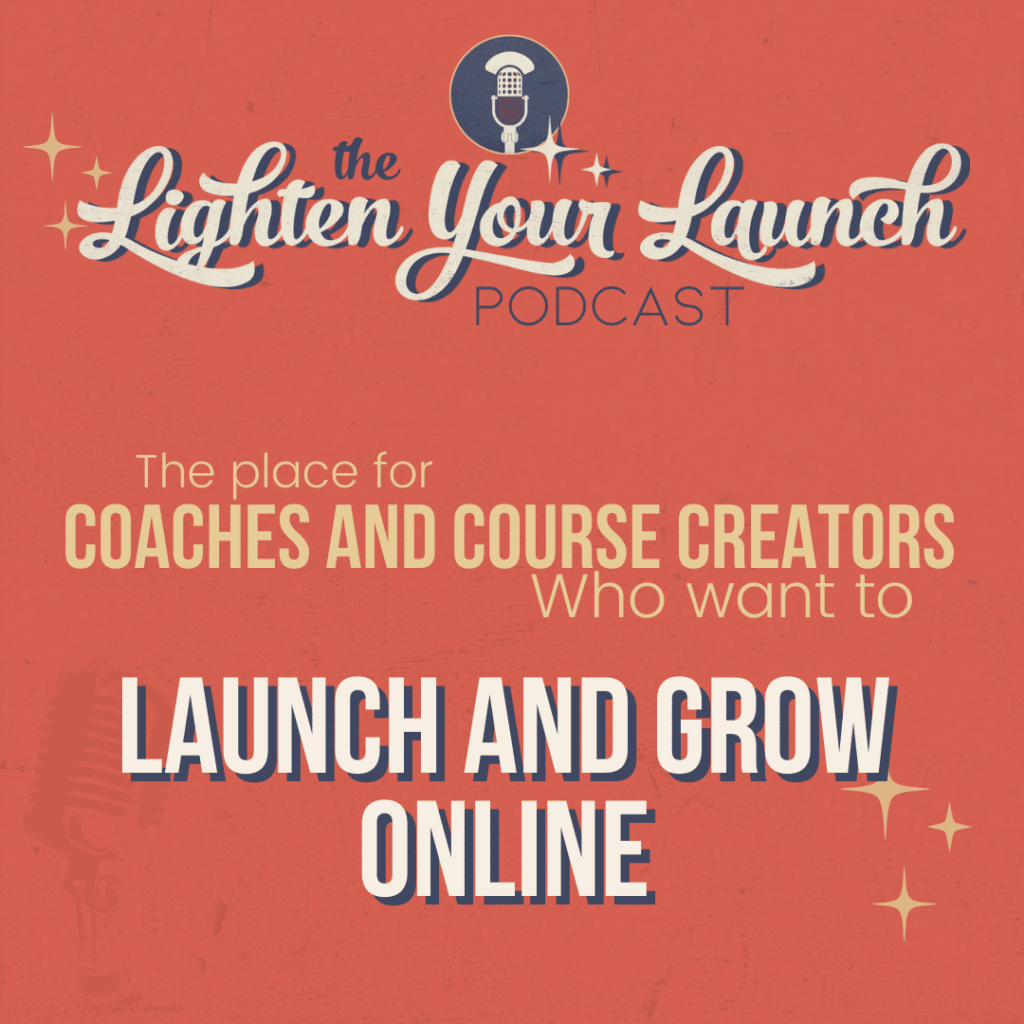
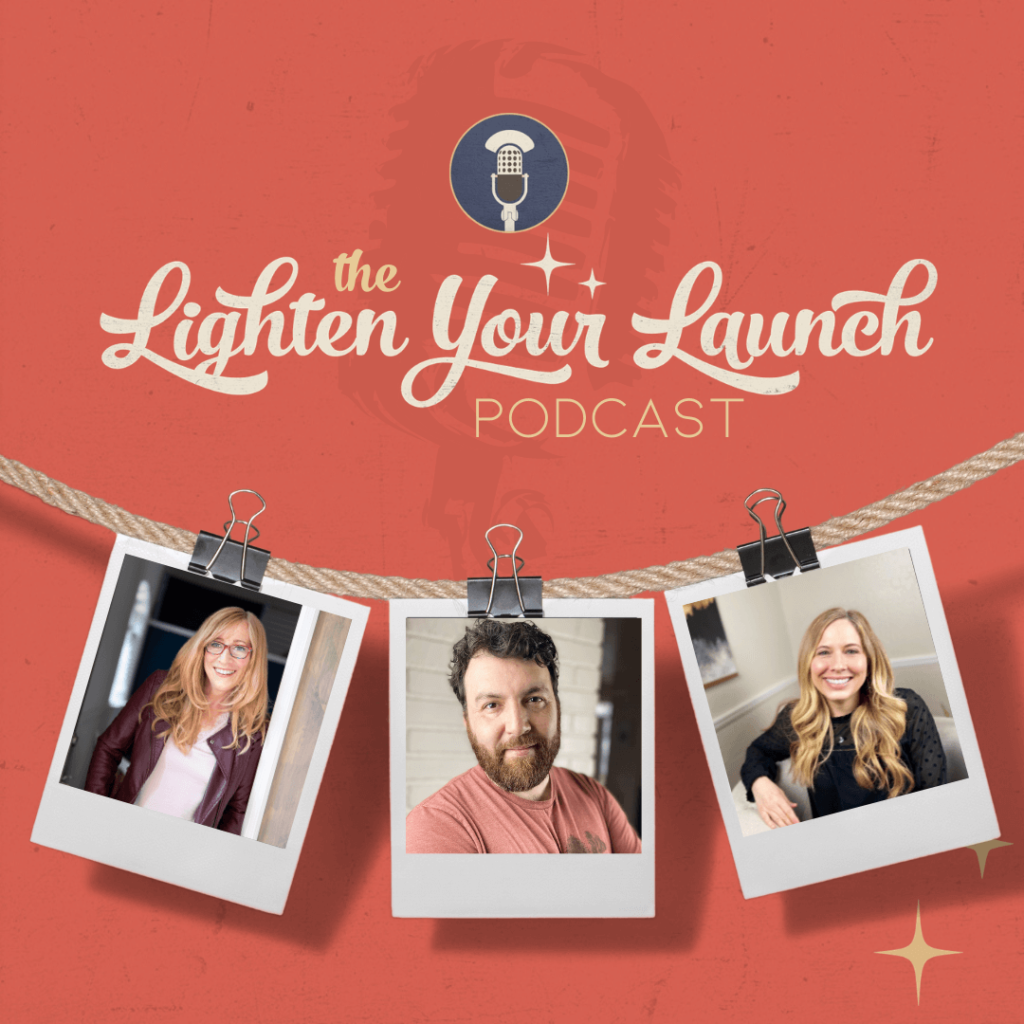


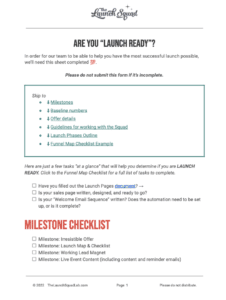
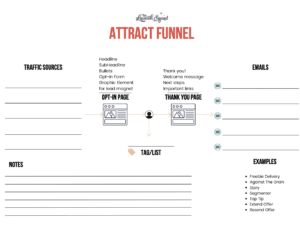
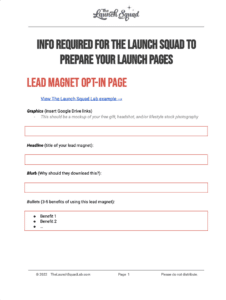
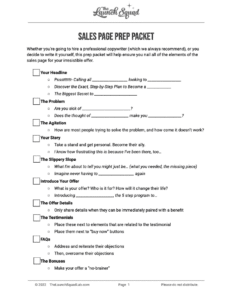
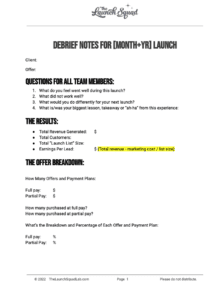
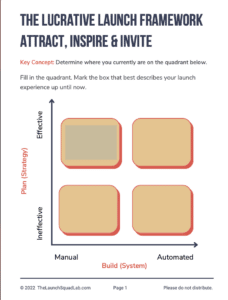
![Marketing Launch Calendar [TEMPLATE]](https://thelaunchsquadlab.com/wp-content/uploads/2023/05/Marketing-Launch-Calendar-TEMPLATE-300x260.png)
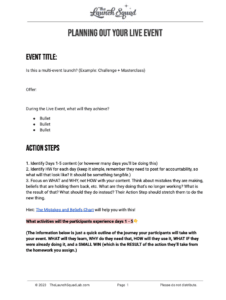
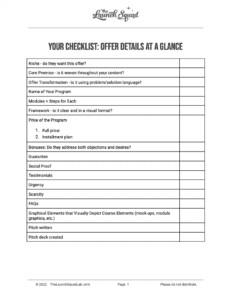
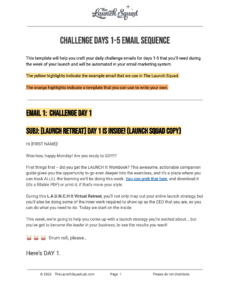
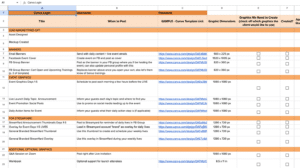
![[Updated] Email Templates for Launch](https://thelaunchsquadlab.com/wp-content/uploads/2023/05/Updated-Email-Templates-for-Launch-223x300.png)
![[REVISED] LS Pitch Script](https://thelaunchsquadlab.com/wp-content/uploads/2023/05/REVISED-LS-Pitch-Script-2023-226x300.png)

